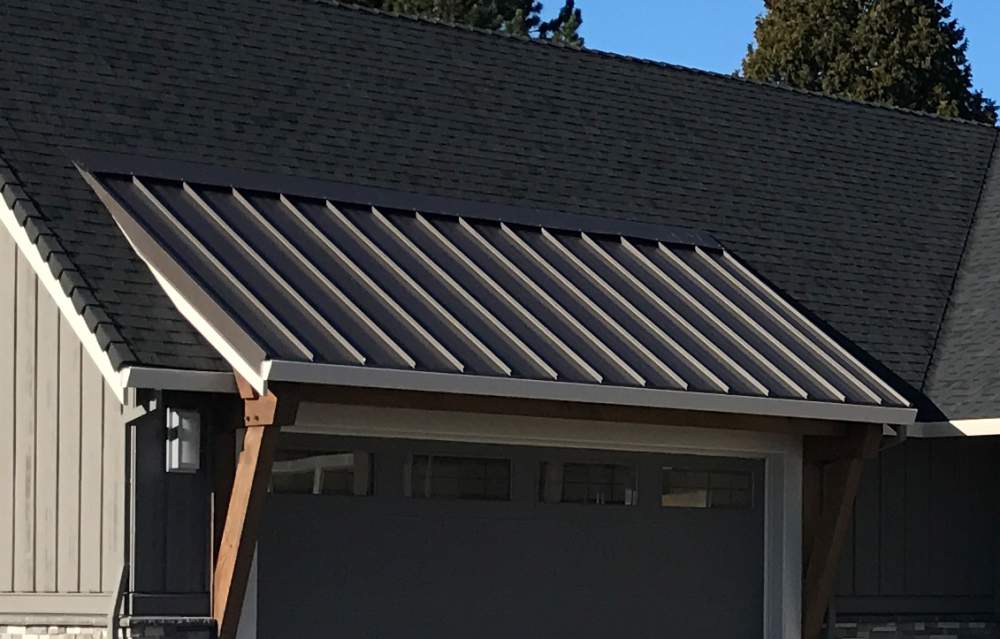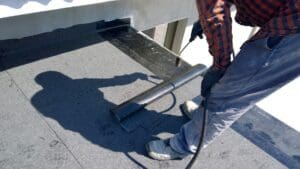
Published on March 23, 2020
For residential applications, most roofing materials come in shingles, roof tiles, or membranes (flat roofs). The base material for these options depends on the look of the home. Quick flip projects may call for asphalt shingles, new builds in a ritzy neighborhood might demand slate tiles, and oceanfront bungalows could look weird with anything but cedar shakes.
Some homeowners even turn to a metal roof for their homes, either as an accent piece or for the entire roof. Metal roofing may look more in place on a small garden shed or barn, but advances in metal roofing make it more appealing to a wide range of owners.
Still, most metal sheets for roofing are manufactured for sheds, barns, garden buildings, or other agricultural buildings. In these cases, appearance isn’t as important as practical use. They are easy to install and Installation goes much faster, too. Instead of installing a single shingle at a time, entire sheets of material can be placed.
Types of Roof Sheeting
Metal Roofing
Similar to corrugated roofing, metal roofing panels can be placed directly on to rafters, decking, or over underlayment for the most protection against the elements. In residential homes, the decking is necessary because asphalt shingles need backing and are too small to span rafters.
Keeping a home as secure as possible from Mother Nature is also a concern, so the three layers (decking, underlayment, roofing) are required as a matter of code. That much protection is less of a concern in commercial or industrial facilities, mostly because of cost.
These panels are generally more attractive than corrugated sheets and can be made in a variety of colors depending on the application. For example, covered parking spaces at an apartment complex can be made to match the exterior color of the facility.
Primarily made of stainless steel or aluminum, these panels are covered in zinc for added protection, are quite durable, and come in a variety of finishes and corrosive inhibitors. When properly installed, metal roofing materials will give you a lightweight, long-lasting, and easy to maintain cover.
Corrugated Sheets
Maybe the most recognizable roofing, corrugated panels have a familiar wavy appearance. These waves improve the structural integrity of the sheet, making it one of the most durable types of sheet roofing. There are several types of corrugated sheets, including:
- Galvanized Steel Sheets – coated with zinc via a hot-dip process for extra protection, these steel sheets can be finished with a wide variety of colors.
- Polyester Painted Sheets – These sheets are metal that is then covered with a polyester paint that comes in many colors. Not recommended for exterior use or areas that get a lot of sunlight. Primarily used for indoor applications.
- PVC Plastisol Coated Sheets – Starting with a galvanized sheet, a coating of PVC is added for extra protection. Available in a range of colors, the lifespan of this roof is upwards of 30 years.
- Bitumen Sheets – Made from saturated organic fibers that are very rigid – similar to the flat roofing material. These sheets are waterproof, durable, and even provide some insulative properties.
- Plastic Sheets – Although not as durable as it’s steel counterparts, plastic roofing sheets are light, easy to install, and will stand up to the weather. The thicker the plastic, the more durable it will be. You will often see clear plastic roof sheets on greenhouses, but they can be used for any smaller structure.
Many corrugated sheets can also be outfitted with insulation, ideal for structures that are housing animals or equipment or machinery that need to be stored at certain temperatures.
Polycarbonate
Perhaps the most versatile of the sheet roofing, polycarbonate is a rugged plastic that is easy to cut, lightweight, and can be used in several custom applications. Either as clear roofing that offers UV-ray protection, windows in manufacturing or industrial plants, or even artistic and creative endeavors.
The makeup of polycarbonate is also pH neutral, which means harsh chemicals will not affect its integrity. Although they can be cracked with enough force, extra impact resistance and strength can be created by making the material be corrugated.
Single Layer Membrane Roof
 There are two types of membrane roofs: Thermoplastic and Thermoset. Thermoplastic membranes such as polyvinyl chloride (PVC) and thermoplastic olefin (TPO) can be softened through heating and then hardened by cooling time and time again. Thermoset membranes like ethylene propylene diene terpolymer (EPDM), once the roofing materials is hardened, it is irreversible.
There are two types of membrane roofs: Thermoplastic and Thermoset. Thermoplastic membranes such as polyvinyl chloride (PVC) and thermoplastic olefin (TPO) can be softened through heating and then hardened by cooling time and time again. Thermoset membranes like ethylene propylene diene terpolymer (EPDM), once the roofing materials is hardened, it is irreversible.
Modified Bitumen Sheets
These sheets are in rolls and adhered to the roof decking. SBS bitumen sheets are applied with hot asphalt or tar while APP sheets are applied with a torch or other heat sources. Once installed, the sheets are covered with materials similar to BUR (built-up roofs). These sheets are also layered for optimum performance.
Built-Up Roof (BUR)
Also known as tar and gravel roofing, a built-up roof is made up of layers of roofing felt sheets and play sheets. Covered with asphalt or tar, these fiber infused mats are layered on the roof. Gravel, slag, or mineral granules are added to the top to protect the layers below.
The Roofing Professionals
No matter what roofing applications you need, however, the sheets will only work as well as the roofing contractor who installs it. While roof sheets offer easier installation in some respects – especially on flat roofs – there is still a certain way of doing things.
If fasteners aren’t sealed, inappropriate fasteners are used, or sheets are aligned unevenly, the longevity of the material won’t make any difference. This is true for warehouses, residential homes, and business park facilities. That’s why finding an experienced roofer is just as important as the roofing material itself.
Warner Roofing and Construction has been working on residential roofing in Clark County since 1992. In addition to sheet metal roof installation, we also work with composite slate tiles, asphalt, cedar shakes, and other types of roofing. We perform re-roofs, tear-offs and installation, and new-build roofing.
Have an outbuilding in the backyard that could use an upgrade? Get in touch with Warner Roofing and Construction for a free estimate. Need skylight repair or a solar tube installation? We can help! Contact us today with any other roofing help you may need.